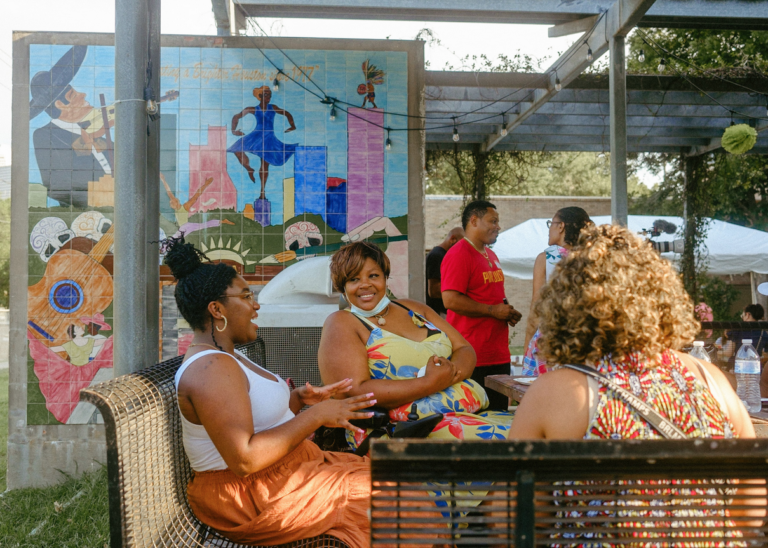Investment aimed at activating communities to address health-related opportunities and challenges affecting their neighborhoods
Episcopal Health Foundation is announcing $4.4 million in new investments to help organizations across Texas work with community members to become advocates for health and adopt new ways of solving health-related problems in their neighborhood.
Successful solutions to complex community health challenges require the input of those most affected by the issues. EHF’s new investments will fund a variety of projects in rural and urban areas of Texas including youth leadership development, community organizing, and coalition-based initiatives.
These investments are part of EHF’s overall health equity mission that aims to ensure that everyone has a fair and just opportunity to be as healthy as possible. This work requires battling obstacles to health such as poverty, discrimination, access to good jobs with fair pay, quality education, safe housing, healthy environments, and health care.
EHF supports efforts that focus on improving the health system by helping community members take charge of their health through advocacy, policy change, and more. Other grants will support statewide efforts to impact health of communities through immunization, improved mental health, and expanded health insurance coverage and benefits.
EHF’s $4.4 million investment will fund 16 community-based organizations and/or projects:
- $600,000 to Avenue Community Development Corporation in Houston to mobilize Northline and Greater Northside communities by broadening and deepening community capacity through leadership and advocacy training on issues that affect health.
- $500,000 to BakerRipley in Houston to build community capacity through leadership and advocacy training as resident leaders take direct action within their communities to improve health.
- $150,000 to Bastop County Cares to provide Holy Currencies training to create sustainable, community-based ministries to various faith-based communities in Bastrop County.
- $125,000 to support the BUILD Health Challenge evaluation efforts in its work to support community collaborative projects in Texas and across the country that partner with health departments and hospitals to promote health equity and work to address non-medical factors that impact health.
- $300,000 to the Center for Urban Transformation in Houston to strengthen community leadership in Fifth Ward and implement a strategic plan to improve health outcomes by addressing non-medical factors that impact health.
- $150,000 to Children’s Defense Fund to mobilize Texans to advocate for expanded health insurance coverage across the state.
- $130,000 to Communities for Better Health in Houston to strengthen the ability for community groups in Kashmere and Trinity Gardens to address health-related issues through resident leadership and advocacy training.
- $300,000 to Dallas Area Interfaith working in Tyler and Northeast Texas to develop a cluster of diverse groups that will act for the common good on projects related to health and addressing non-medical factors that impact health.
- $400,000 to East Harris County Empowerment Council to recruit, train, and support five cohorts of community residents across various neighborhoods to improve health outcomes through leadership training and finding ways to address non-medical factors that impact health.
- $250,000 to Houston in Action to support community organizing work with health sector partners and other groups serving communities of color.
- $400,000 to Local Initiatives Support Corporation in Houston to provide health equity leadership training to more than 13 neighborhoods with few resources to address non-medical factors that impact health in their communities.
- $40,000 to National Alliance on Mental Health-Texas to support grassroots advocacy for those affected by mental health and to work toward policy change in the mental health system across the state.
- $320,000 to Neighborhood Recovery CDC in Houston to support the multi-sector OST/South Houston Health Improvement Partnership coalition that engages residents to improve community health through systemic change in health equity.
- $150,000 to Texas Network of Youth Services to elevate the voice of youth leaders in shaping health policies and practices that impact the health system and improve youth health outcomes.
- $450,000 to The Immunization Partnership to support work across the state to promote immunizations and build coalitions, deepen advocacy, and engage medical and other traditional partners.
- $125,000 to Waco Foundation to benefit the Texas Census Institute’s statewide work to provide independent, nonpartisan, and data-driven Census policy and program guidance and encourage participation in the Census and American Community Survey.
